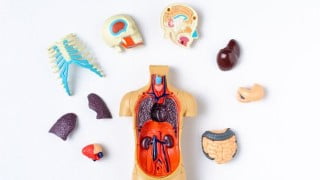Biology – Chemical Coordination and Integration
Learn about the endocrine system and its hormones, including their functions and regulation. Perfect for biology enthusiasts, beginners, and those preparing for exams like NEET and MHT-CET. Suitable for students of State Board, CBSE, ICSE, IGCSE, and NEET.
What you’ll learn
- Endocrine Glands and Hormones
- Human Endocrine System
- Hormones of Heart, Kidney and Gastrointestinal Tract
- Mechanism of Hormone Action
SUMMARY
There are special chemicals which act as hormones and provide chemical coordination, integration and regulation in the human body. These hormones regulate metabolism, growth and development of our organs, the endocrine glands or certain cells. The endocrine system is composed of hypothalamus, pituitary and pineal, thyroid, adrenal, pancreas, parathyroid, thymus and gonads (testis and ovary). In addition to these, some other organs, e.g., gastrointestinal tract, kidney, heart etc., also produce hormones. The pituitary gland is divided into three major parts, which are called as pars distalis, pars intermedia and pars nervosa. Pars distalis produces six trophic hormones. Pars intermedia secretes only one hormone, while pars nervosa (neurohypophysis) secretes two hormones. The pituitary hormones regulate the growth and development of somatic tissues and activities of peripheral endocrine glands. Pineal gland secretes melatonin, which plays a very important role in the regulation of 24-hour (diurnal) rhythms of our body (e.g., rhythms of sleep and state of being awake, body temperature, etc.). The thyroid gland hormones play an important role in the regulation of the basal metabolic rate, development and maturation of the central neural system, erythropoiesis, metabolism of carbohydrates, proteins and fats, menstrual cycle. Another thyroid hormone, i.e., thyrocalcitonin regulates calcium levels in our blood by decreasing it. The parathyroid glands secrete parathyroid hormone (PTH) which increases the blood Ca2+ levels and plays a major role in calcium homeostasis. The thymus gland secretes thymosins which play a major role in the differentiation of T-lymphocytes, which provide cell-mediated immunity. In addition, thymosins also increase the production of antibodies to provide humoral immunity. The adrenal gland is composed of the centrally located adrenal medulla and the outer adrenal cortex. The adrenal medulla secretes epinephrine and norepinephrine. These hormones increase alertness, pupilary dilation, piloerection, sweating, heart beat, strength of heart contraction, rate of respiration, glycogenolysis, lipolysis, proteolysis. The adrenal cortex secretes glucocorticoids and mineralocorticoids. Glucocorticoids stimulate gluconeogenesis, lipolysis, proteolysis, erythropoiesis, cardio-vascular system, blood pressure, and glomerular filtration rate and inhibit inflammatory reactions by suppressing the immune response. Mineralocorticoids regulate water and electrolyte contents of the body. The endocrine pancreas secretes glucagon and insulin. Glucagon stimulates glycogenolysis and gluconeogenesis resulting in hyperglycemia. Insulin stimulates cellular glucose uptake and utilisation, and glycogenesis resulting in hypoglycemia. Insulin deficiency and/or insulin resistance result in a disease called diabetes mellitus.
The testis secretes androgens, which stimulate the development, maturation and functions of the male accessory sex organs, appearance of the male secondary sex characters, spermatogenesis, male sexual behaviour, anabolic pathways and erythropoiesis. The ovary secretes estrogen and progesterone. Estrogen stimulates growth and development of female accessory sex organs and secondary sex characters. Progesterone plays a major role in the maintenance of pregnancy as well as in mammary gland development and lactation. The atrial wall of the heart produces atrial natriuretic factor which decreases the blood pressure. Kidney produces erythropoietin which stimulates erythropoiesis. The gastrointestinal tract secretes gastrin, secretin, cholecystokinin and gastric inhibitory peptide. These hormones regulate the secretion of digestive juices and help in digestion.
Who this course is for:
- Biology enthusiast.
- Beginners in Biology.
- NEET & MHT-CET aspirants
- Those preparing for board and competitive exams State Board, CBSE, ICSE , IGCSE, MHT-CET & NEET
User Reviews
Be the first to review “Biology – Chemical Coordination and Integration”
You must be logged in to post a review.







There are no reviews yet.